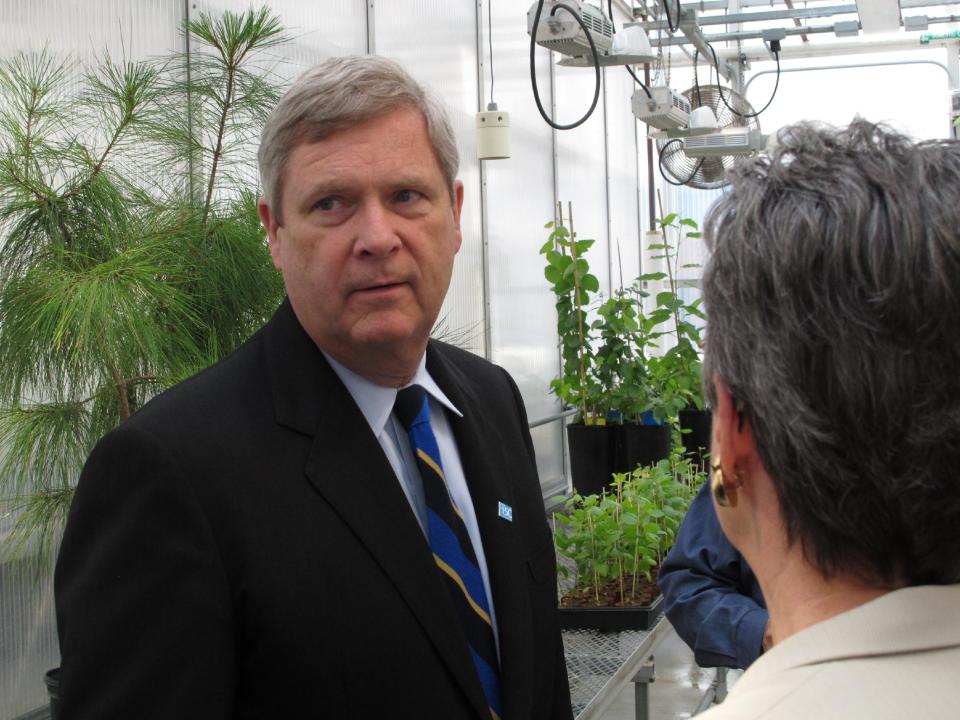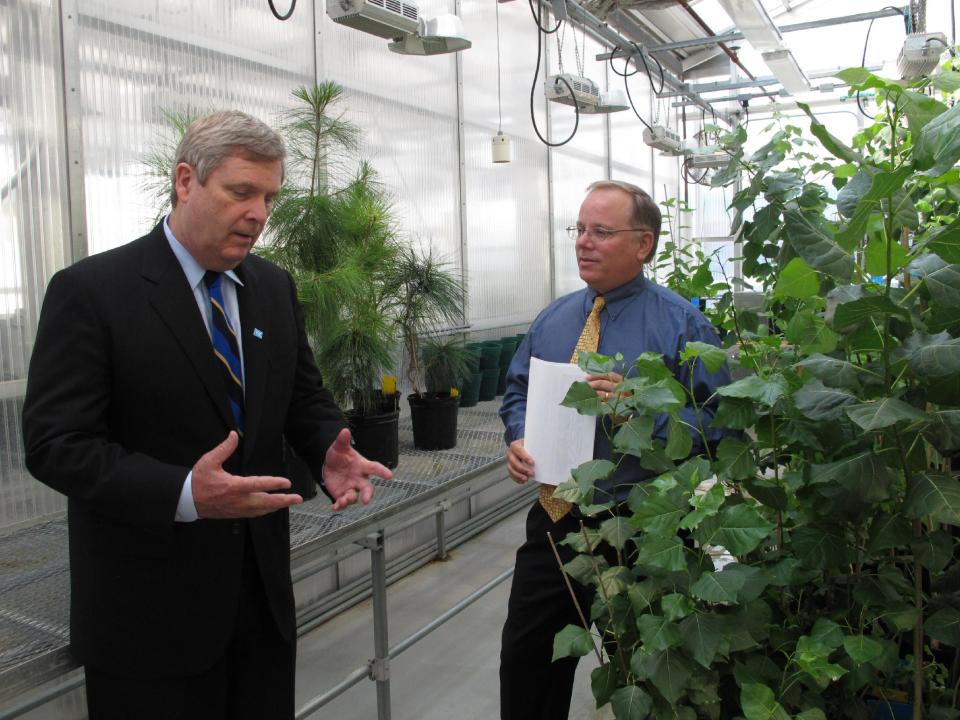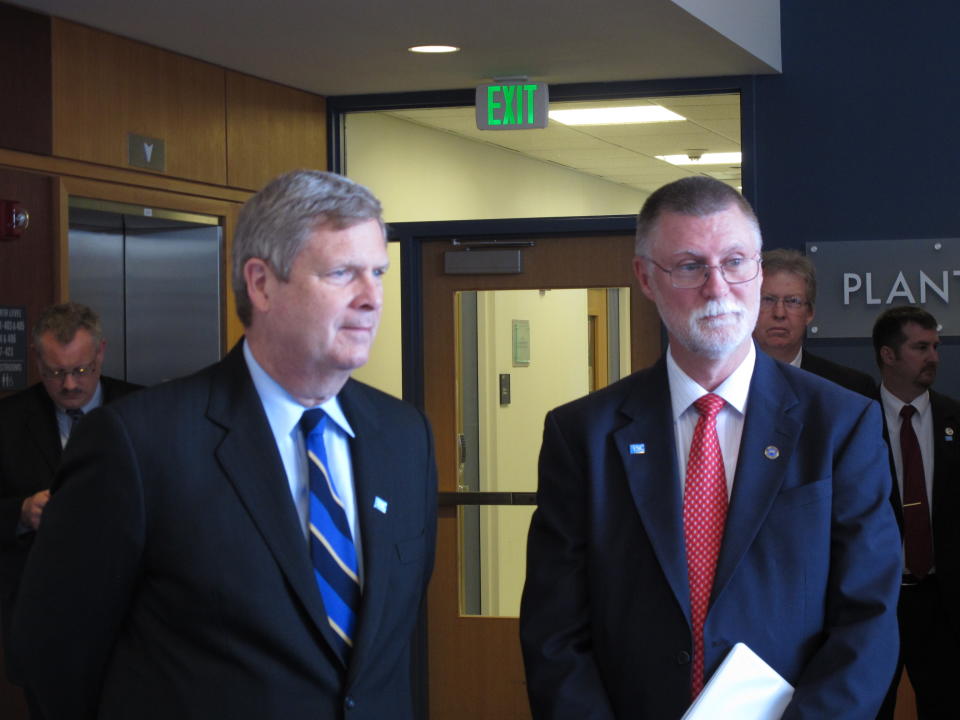Vilsack touts PSU research, stumps for farm bill
STATE COLLEGE, Pa. (AP) — U.S. Agriculture Secretary Tom Vilsack sought Wednesday to raise the profile of agricultural research at universities like Penn State as Congress begins the arduous task of renewing the farm bill.
Penn State leads more than 65 federal research grants totaling more than $30 million, according to the USDA. Vilsack visited one project Wednesday after touring a greenhouse lab that is taking part in research for biofuels.
Later, Vilsack said at a news conference that he hoped to underscore during his visit as "Congress begins its conversation and discussion about the (farm bill) that research in that discussion is extremely important, perhaps more important today than ever.
"It's important that Congress get it right, and that it provides adequate resources because there is a significant return on investment to research, particularly in" agriculture.
The current five-year food and farm bill expires at the end of September. The Senate has started working on a new, half-trillion-dollar version, though there is still plenty of work to be done as lawmakers seek to satisfy constituents with varying agendas — in a presidential election year, no less.
Vilsack made no mention of President Barack Obama's re-election campaign; the visit was billed strictly as Department of Agriculture business.
The former Iowa governor said he understood the budget predicament facing Pennsylvania. Gov. Tom Corbett earlier this year proposed cutting higher education funding for Penn State while maintaining level funding for agricultural research and extension.
Level funding for extension and research was good news relative to the financial climate in the state, said Bruce McPheron, dean of the College of Agricultural Sciences.
Otherwise, Vilsack focused squarely on swaying Congress in a talk to Penn State students, teachers and researchers that often sounded like a pep talk. He was trying to highlight the effect of agricultural research beyond the immediate impact on farmers, including areas such energy research and nutrition.
"I think if we do a better job of articulating that, then maybe it will be a little bit easier for governors, state legislators and Congress to make sure that the adequate resources are invested," Vilsack said.
The agricultural sciences college has 3,000 undergraduate students, and McPheron proudly boasted that nearly 100 percent of graduates in food science or agricultural teaching go on to find jobs. Graduates in biological engineering have an 85 percent employment rate, he said.
Agricultural officials accompanying Vilsack wore pins with the number "150." This year is the 150th anniversary of the establishment of the U.S. Department of Agriculture.
It's also the 150th anniversary of the act of Congress that led to the establishment of the first land-grant universities, including Penn State. The Morrill Land-Grant Act in 1862 was passed to encourage colleges to add engineering, mining, agriculture and other applied sciences to courses rooted in arts and letters.



